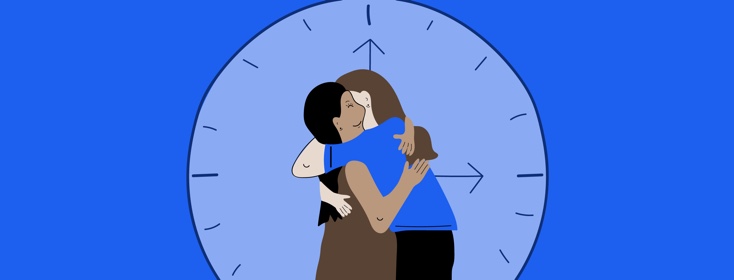How Long Do I Have?
When I was diagnosed with follicular lymphoma, a friend who is also a pediatric oncologist, warned me not to Google life expectancy. She cautioned whatever number I found wouldn't reflect the latest research.
Yet, “how long do I have” is probably a cancer patient’s most burning question at diagnosis. The answer matters. It helps calculate the trade-offs of different treatments. But more importantly, the answer determines the relative value a patient will put on the present. A response of just a few months creates an urgency far different than if told a decade.
Despite my friend’s advice, I Googled the life expectancy of follicular lymphoma patients. The result was 12-15 years when I was diagnosed almost three years ago. At first, I was comforted knowing I had time — time with my family but also time for new medical innovations. However, I was just 43 at the time of diagnosis, and the youngest of my three sons was seven. It was sobering to think that 15 years only took him to the cusp of young adulthood. If my disease progressed at the average rate, there were many milestones in my kids’ lives that I wouldn’t be around to witness.
Searching for my number
The more I thought about 15 years, the more I determined it wasn’t enough time. I wanted more. As an analytical person, I decided if I dug into the data maybe I could find a better number for myself.
For the first year after my diagnosis, I read every research study on follicular lymphoma I could find. I pored through the data sets to see not only if the results were accurate but also if they applied to me. I’m on the young side to be diagnosed with follicular lymphoma.
Letting go of finding an answer
I brought my binder to my doctor's appointments and drilled my oncologist trying to get him to give me the answer of how long I had. He too enjoys numbers and discussing research but always stopped short on how the results directly impacted me. He cautioned that statistics couldn’t be applied to a single person's case.
Over time, I’ve let go of my binder and no longer fill it with the latest studies. I still read them and take comfort in the variety of treatments proving successful. Some even offer the potential for a cure.
Clearer focus on priorities
However, I haven’t let go of the 15 years life expectancy number. It’s a helpful metric for me. It acts like a magnifying glass keeping my priorities — my family and friends, writing and advocacy — sharply in focus ensuring I won’t regret how I’ve spent my time should I only live to be 57.
After I was diagnosed, a good friend of mine made a new policy. We never left each other without a hug. Not a cheap one either but a tight one where our hearts touched. I’m sure she started this thinking my time was limited, and she wanted to ensure we parted knowing how much we loved each other. My friend recently died suddenly and unexpectantly at the age of 57.
Her death is a painful reminder of the proverbial bus that could hit any of us at any time. No one, whether they have cancer or not, knows how long they will live. I’m incredibly grateful for all the hugs I shared with my friend since my diagnosis. She taught me a lesson I couldn't find in a binder of research studies. You’re only guaranteed the present. Don't pass up the opportunity to show someone you love them.

Join the conversation